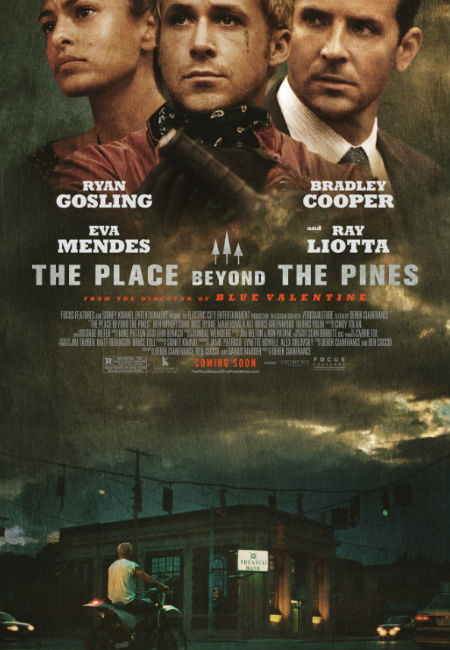
Thwarted expectations lie at the heart of The Place Beyond the Pines, Derek Cianfrance’s almost Shakespearianly-epic tale of two distinctly different men struggling to reconcile two implacably opposed extremes – what they believe life will bring to them and what it actually ends up delivering.
Both Ryan Gosling as Luke Glanton – reunited with Cianfrance after they first worked together on 2010’s emotionally-eviscerating My Blue Valentine – and Bradley Cooper as Avery Cross, deliver stellar performances illuminating in stark detail the often messy collision between hopes and dreams, and the cold, hard hand of reality.
Neither man emerges unscathed from the encounters, with both paying a high price for the decisions they make, consequences that are played out in the third act of this stirring drama, a fitting, if overly tidy, finale to the two epic acts that precede it.
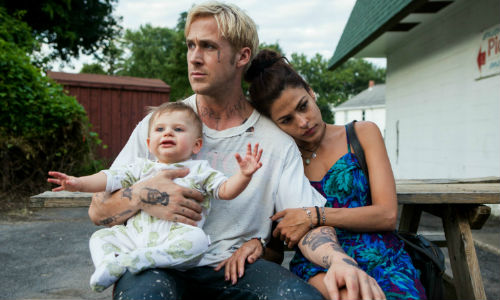
In the bleak, emotionally raw first part of the film, Luke Glanton, a motorcycle stunt rider with an act that travels the state fair circuit, a lifestyle that suits perfectly a man of limited expectations drawn from a lifetime of emotional neglect, discovers he has a son with Romina (Eva Mendes, in another powerfully understated performance), a woman with whom he had an almost-forgotten fling.
After almost immediately quitting his job as a stuntman, and securing a minimum wage job working for auto repair shop owner Robin (Ben Mendelsohn) in order to be near his son, Luke is a man reborn, seized by an almost evangelical zeal to be the best father he can be and by so doing craft the sort of family life denied to him so far in life.
However, despite doing everything he can to provide for his son, including teaming up with Robin for a series of increasingly daring, and ultimately, ill-advised bank robberies, he is unable to bridge the daunting gap between his idealistic expectations of the perfect life, and the reality of a world where Romina, happy with her new partner Kofi (Mahershala Ali), and unwilling to allow Luke to use her to play out his domestic fantasies, ends up wanting nothing to do with him, initial flirtations notwithstanding.
His quixotic quest to create the life denied him, ends, much as you might expect, in tragedy – of what kind I cannot say exactly since The Place Beyond the Pines depends for its dramatic gravitas on one major consequential decision after another, none of which can be revealed without compromising the overall viewing experience, so finely intertwined are all the acts – and the end of any hope that reality may bend enough to grant him the realisation of expectations he realises all too late were simply fanciful, doomed-to-failure dreams.
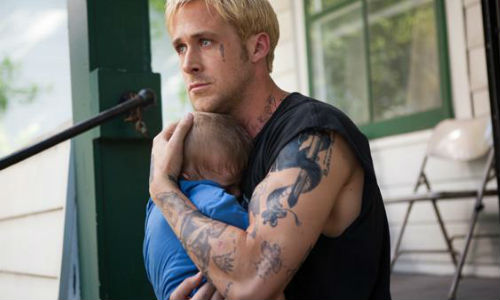
Avery Cross by contrast is a man who seems to have been given every chance of bringing even the most grandiose of his dreams to fruition.
Raised as the son of a Supreme Court judge, Al (Harris Yulin), and a law school graduate whose connections would have ensured him a plumb job at the big end of town (and an eventual run at political office if his father had his way), Avery instead opts to join the Schenectady, New York police department with high hopes of enforcing justice rather than simply talking about it as he did at university.
But dig beneath the shiny gloss of a privileged upbringing and idealistic career ambitions in law enforcement, and Avery is just another man with expectations that don’t quite pan out as he thought they would.
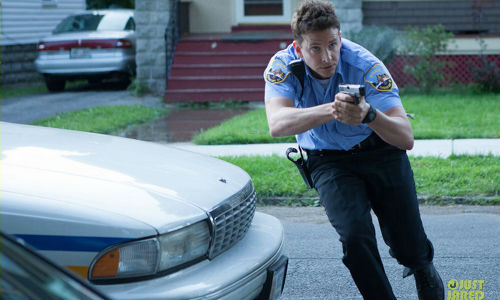
While his stratospheric rise through the political ranks in the intense second act, culminating in a run at the New York Attorney General’s job, goes pretty much as he expects, it is his career as a police officer, where he encounters on an epic, almost untameable scale, and his personal life that is found wanting as both his marriage and his relationship with his son, AJ (Emory Cohen) falter in the face of reality’s unrelenting glare.
Try as he might to patch up these holes in his life, especially his relationship with AJ who is spinning rapidly into an abyss of chronic alcohol and drug use at the age of 17, he finds time and again that his expectations are never quite met, and in fact, fall far short almost every time.
Both Avery and Luke, though inhabiting, at first glance, vastly different worlds, and connected only by one profoundly impacting event that changes the course of both men’s lives forever, are united in their inability to bend the contrary will of reality to their needs and desires.
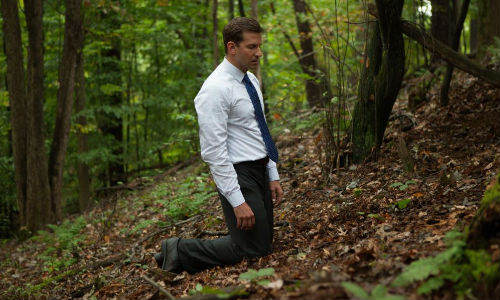
It is a lesson learnt early by the next generation when an almost too neat set but nevertheless narratively useful of circumstances brings Luke’s now adult son Jason (Dane DeHaan) into contact with Avery’s problematic son AJ.
Bonded by their disaffection with the state of their lives, their outsider status at school and their liberal drug use, they form a close if at times adversarial relationship that is tested very early on when they are arrested for drug possession.
Freed thanks to Avery’s now considerable political clout, they move back and forth uneasily in each other’s orbit till a set of cascading developments send them, and those closest to them on a collision course with the brutality of life expressed in its crudest, most unyielding form.
While the third act which is largely devoted to them, and their near-destructive love/hate relationship, is wrapped up almost a little too easily, it succeeds in drawing together, with powerful dramatic force, the events of the entire film.
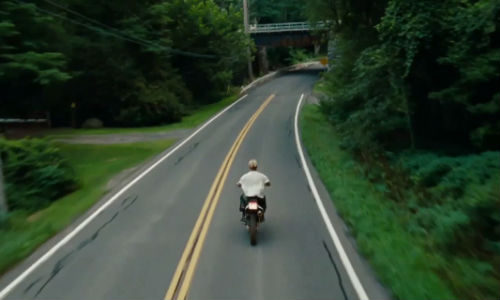
Granted the film does falter a little in its closing third, unsure at times how this generation-spanning drama should conclude itself, but it remains throughout, buoyed by a confident script, first-rate performances all around, and a distinctive almost film noir-visual style that exposes the bleak underbelly of the American dream in its physical form, a movie that balances raw, human, and at times explosive drama with the larger questions of what it means to find life wanting.
Or at least our expectations of it.